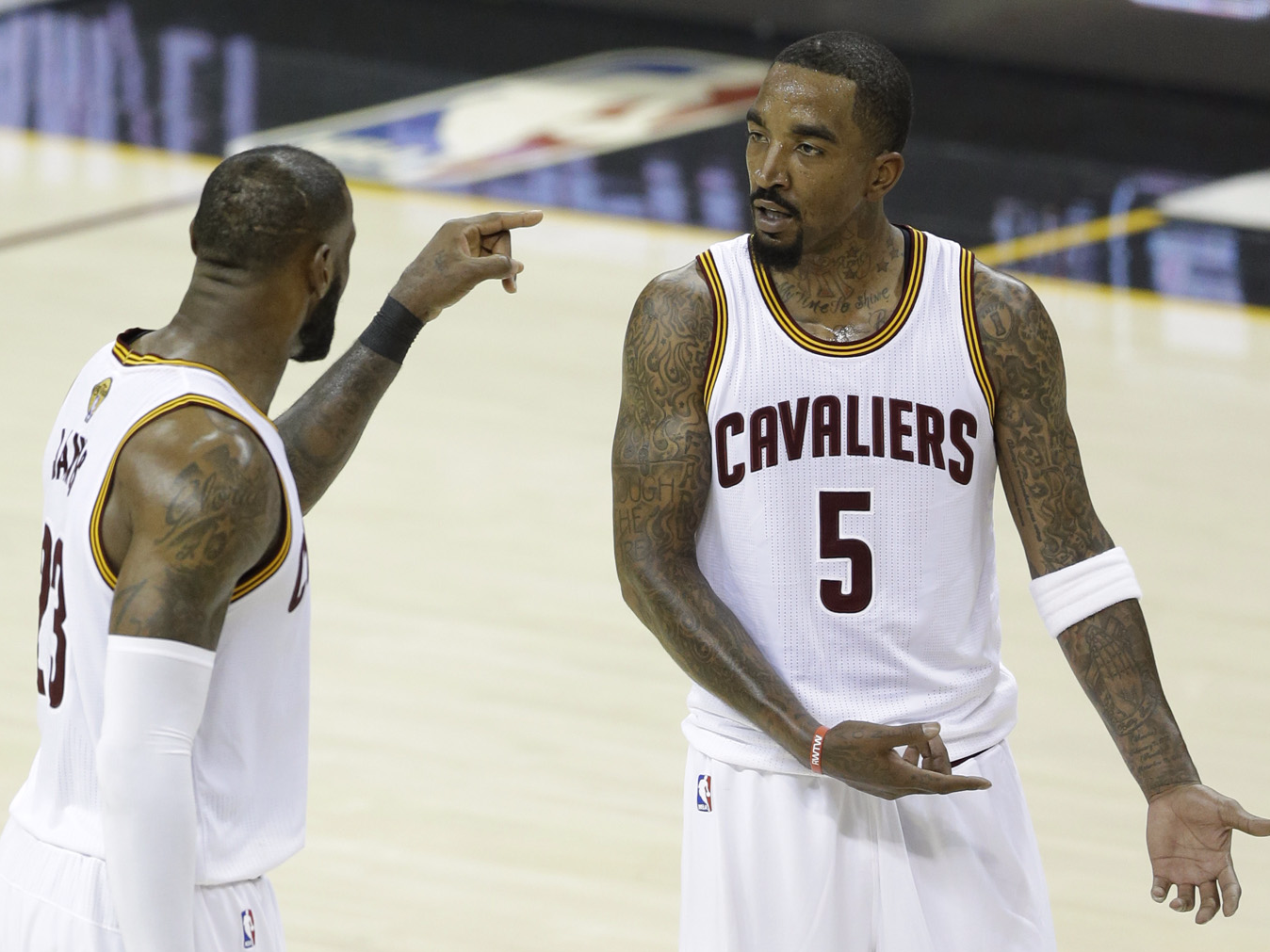The Cleveland Cavaliers made several changes to their roster this offseason, and with them, several changes to their rotations.
Early in training camp, the Cavaliers decided to move starting center Tristan Thompson to the bench and slide Kevin Love to center.
This week, the Cavs decided to move J.R. Smith to the bench to start newly acquired Dwyane Wade next to LeBron James.
The change is not necessarily a surprise, as some of Smith’s best years came as a reserve and there was some question about how Wade would handle coming off the bench. However, it’s also a bit of a blow to Smith, who performed capably as a starter for the Cavs over the past three seasons, all of which resulted, of course, in Finals appearances. Smith not only spaced the floor effectively, but defended well, helping shed a reputation as a hapless, indifferent defender.
Smith admitted his frustration with moving to the bench to reporters, but it was a comment about the upside of coming off the bench that may have been more revealing.
"I actually like playing on the second unit better," Smith told reporters. "I'm more of a playmaker and distributor and I handle the ball a little bit more instead of just running to the corner."
The comment came after Smith said he is willing to come off the bench for the betterment of the team. Smith said he and Thompson spoke about their respective moves, saying, "It wasn't the most positive conversation, but we talked about it and we'll get through it together."
Smith surely didn't mean the comment as a dig at James, but it highlights the specific type of sacrifice players must make with James.

James controls the ball on offense because he's perhaps the best playmaker in the NBA. Players around James must be capable of spacing the floor, moving off the ball wisely, and attacking closeouts after James draws an extra defender.
James makes every player around him better, but there is also a sacrifice to playing in the way James wants. For Smith, it often meant staying ready on the perimeter for open shots and attacking closeouts. That was a good role for Smith, as he posted a solid 62.9% eFG (which accounts for twos and threes) off catch-and-shoots during a strong 2015-16 campaign before posting a 53% eFG in 2016-17 in an injury-riddled season.
But that doesn't mean that is the only role Smith wanted to play. Kyrie Irving went through the same thing with Cleveland, and his desire to get out from under James and act as the No. 1 playmaker on a team led him to request a trade from Cleveland. James ceded plenty to Irving over the years and even looked to Irving to carry the team for big stretches, but at the end of the day, the Cavs were always James' offense. When James went to the Miami Heat, he did not adjust to Chris Bosh and Wade so much as they adjusted to him. When Wade moved into a clear No. 2 role behind James, the Heat took off.
James commented on Smith's new role off the bench after a preseason game, saying: "JR has turned himself into a playmaker as well and to get him coming off screens where a lot of defenses react to that ... JR's ability to playmake in that second lineup helped us out a lot."
How beneficial the reserve role for Smith will be remains to be seen. Smith has shown flashes of being a playmaker throughout his career, but has never sustained it for long periods of time. In fact, part of the reason he has excelled in Cleveland is that he's been asked to do less on offense.
The Cavs certainly are not locked into any one rotation; head coach Tyronn Lue can change it at any time depending on the results. For now, while Smith would rather be starting and, presumably, playing more minutes, the upside of coming off the bench is simply getting to do more when he's on the floor.

